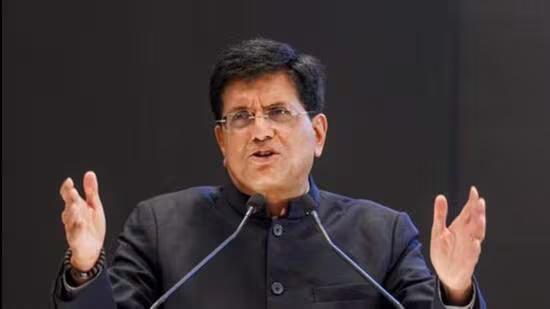
India will Retaliate if Proposed Carbon Tax Harms Exports: Goyal
In a stern warning to the UK government, Indian Commerce and Industry Minister Piyush Goyal has stated that India will take strong retaliatory measures if the proposed carbon tax in the UK harms domestic exports. This statement comes in the wake of the UK’s decision to implement its Carbon Border Adjustment Mechanism (CBAM) starting in 2027.
As reported by NDTV, Goyal emphasized that India will not tolerate any unilateral measures that harm its interests and will respond proportionately to any such actions. “I can assure that no unilateral measure which hurts India can go away without a proportionate response,” he said.
The Carbon Border Adjustment Mechanism (CBAM) is a new policy introduced by the UK to reduce carbon emissions by imposing a tax on imports from countries that do not have similar carbon pricing mechanisms in place. The aim of this policy is to encourage countries to adopt similar climate policies and reduce their carbon footprint.
However, India has expressed concerns that this policy will harm its domestic exports, particularly in the textile and steel industries. India is one of the largest exporters of textiles and steel products to the UK, and any increase in costs due to the carbon tax could make these exports less competitive in the global market.
Goyal’s warning to the UK government is a clear indication that India is not willing to compromise on its export interests. The Indian government has been advocating for a more balanced approach to climate change, one that takes into account the developmental needs of countries like India.
India’s concerns are not unfounded. The country is still recovering from the economic impact of the COVID-19 pandemic, and any additional burden on its exports could exacerbate the situation. Moreover, India has been working towards achieving its climate goals, including increasing its renewable energy capacity and promoting sustainable development.
In response to the UK’s decision to implement CBAM, India has been engaging with the UK government to express its concerns and seek a more balanced approach. Goyal has also emphasized the need for a global consensus on climate change, rather than unilateral measures that could harm developing countries.
“I think the world needs to move towards a more global consensus on climate change, rather than individual countries taking unilateral measures that can hurt other countries,” Goyal said.
Goyal’s statement has sent a clear message to the UK government that India will not hesitate to take retaliatory measures if its export interests are harmed. The Indian government has been strengthening its trade ties with other countries, and any negative impact on its exports could have far-reaching consequences for its economic growth.
The impact of the carbon tax on Indian exports is not limited to the textile and steel industries. Other sectors like pharmaceuticals, automobiles, and electronics could also be affected. India’s exports have been a major driver of its economic growth, and any decline in exports could have a significant impact on the country’s GDP.
In conclusion, Goyal’s warning to the UK government is a clear indication that India will not compromise on its export interests. The country is looking for a more balanced approach to climate change, one that takes into account its developmental needs. The Indian government will continue to engage with the UK government to express its concerns and seek a more equitable solution.





